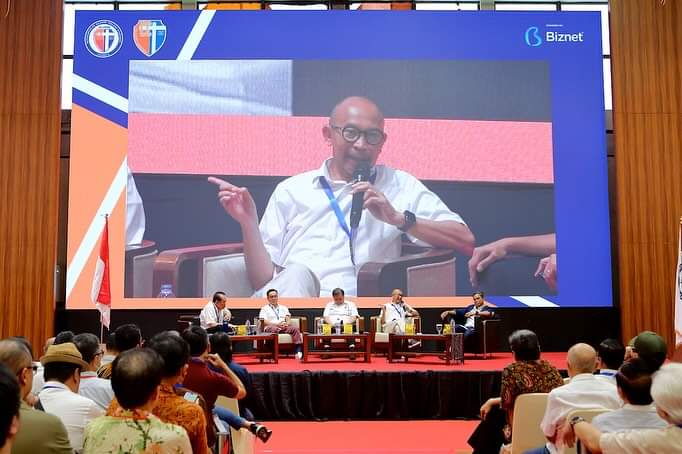AFPI and OJK Unite at Fintech Forum to Address Challenges Facing Online Lending
JAKARTA, RAKYAT NEWS –The Otoritas Jasa Keuangan (OJK), Indonesia’s Financial Services Authority, plays a critical role in regulating and supervising the country’s financial services sector. Established in 2011, the OJK oversees a broad range of financial institutions, including banks, insurance companies, and capital markets. Its primary mission is to ensure the stability and integrity of Indonesia’s financial system, protect consumers, and foster a conducive environment for fair competition. By implementing comprehensive regulations and monitoring compliance, the OJK aims to safeguard investor interests and promote financial sector growth.
Financial technology (fintech), represents a transformative force within the financial services industry. It encompasses a wide array of technological innovations designed to enhance or streamline financial processes, such as digital payments, lending platforms, and investment solutions. Fintech companies leverage technologies like artificial intelligence, blockchain, and big data to offer more efficient, accessible, and personalized financial services. In Indonesia, fintech has been rapidly expanding, driven by the increasing adoption of digital platforms and a growing demand for more convenient financial solutions.
The Asosiasi Fintech Pendanaan Bersama Indonesia (AFPI) is a key industry association that supports the development and regulation of peer-to-peer (P2P) lending and crowdfunding platforms in Indonesia. Founded in 2016, AFPI works closely with the OJK and other stakeholders to establish industry standards, promote best practices, and advocate for policies that foster innovation while ensuring consumer protection. Through its efforts, AFPI aims to enhance the credibility and trustworthiness of fintech platforms, facilitate industry growth, and contribute to the broader financial inclusion goals of Indonesia.
Senior economist and former Indonesian minister of finance, Chatib Basri has emphasized the need for financial technology (fintech) companies to adopt a “path to profitability” strategy, given the expected persistence of relatively high interest rates through the end of the year.
He highlighted that with higher borrowing costs, fintech firms must focus on becoming profitable. He cited India’s success in technology adoption as a model, noting its similarities to Indonesia, including its large population and democratic vibrancy.
The role of the Indonesian Fintech Funding Association (AFPI) is seen as crucial in boosting financial productivity and inclusion.
“In this context, AFPI’s role is crucial for enhancing productivity and expanding financial inclusion,” Chatib said.
Data from the Financial Services Authority (OJK) shows a 26.73% year-on-year increase in fintech peer-to-peer (P2P) lending, reaching IDR 66.79 trillion as of June 2024. The credit risk level remains stable at 2.79%, down from 2.91% in May 2024.
OJK Chief Executive Agusman expressed confidence in the industry’s efforts to sustain long-term growth and also noted OJK’s support for rebranding fintech services to counteract the negative connotations associated with “pinjol” (online loans).
“The fintech industry also supports the economy and financial sector by reaching grassroots communities with access to loans that remain limited.” he said
The AFPI recently held the “AFPI CEO Forum 2024” to address industry challenges, including combating illegal online lending and improving financial literacy. (Uki Ruknuddin)



























Tinggalkan Balasan